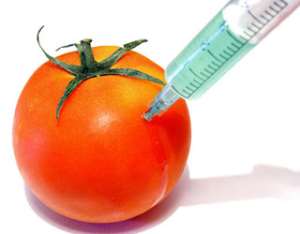
Media Practitioners in the Upper East Region have received training on biotechnology and Genetically Modified Organisms (GMOs).
The training was to enable them to contribute significantly to demystify the misconception and mystery surrounding the adoption of the intervention.
The training, organised by the Open Forum on Agriculture Biotechnology (OFAB) Ghana, in collaboration with the Council for Scientific and Industrial Research (CSIR) was aimed at equipping the journalists with the knowledge and understanding of biotechnology in farming and agriculture.
Biotechnology in its simplistic form, involves the exploitation of the biological processes for industrial and other purposes, particularly the genetic manipulation of micro-organisms for the production of antibiotics and hormones among others.
The programme, on the theme, 'Exemplary Journalism, credible science reporting and better understanding of science technology and innovation' would equip them to help effectively educate the general public to adopt the technology to ensure sustainable national food security and improved livelihoods of farmers.
Due to the misconception thwarting the adoption of the GMO technology, OFAB believed that the training would enable journalists to significantly influence policy decisions making on issues of agriculture through the provision of expert knowledge and facts for the consumption of the public.
Speaking at the training, Professor Kenneth Danso, the Director of the Biotechnology and Nuclear Agriculture Research Institute indicated that biotechnology had been in practice for a long time and involved fermentation used in bread baking, kenkey and alcoholic production.
He said on the other hand, the modern biotechnology involved the development of cellular organisms in which biological systems and living organisms were used to make or modify products which were insects and hybrid resistant and could withstand environmental stress.
Professor Danso explained that the incessant increase in the country's population putting on food production, needed interventions to improve on agriculture production to meet the high demands and the adoption of the GMOs would not only increase crop yields, but would also improve nutritional values and incomes of farmers.
The Director stated that some scientists sought to truncate the efforts being made towards the adoption of the GMOs by associating health complications to the consumption of GMO products to put fear in the public and hamper the country's efforts at achieving the Sustainable Development Goals especially goal two which talked about ending hunger.
He therefore called for collective efforts from all stakeholders, particularly the media to be equipped with modern biotechnology and science issues as well as employ their influential power to help educate the public to better appreciate the intervention.
Mrs Ama Kudom-Agyemang, an Environmental Communicator and Journalist with OFAB Ghana indicated that the negative perception in the public domain especially among famers about the use of the modern biotechnology and other scientific methods of agriculture was as result of misinformation, ignorance and the lack of understanding.
Mrs Kudom-Agyemang challenged her colleague media practitioners to endeavour to broaden their knowledge and understanding on the application of the modern biotechnology to ensure enhanced scientific reportage to influence society's perception positively.
The Environmental Communicator stressed that it was the responsibility of the media as partners in development to educate the public on the benefits of the intervention and other scientifically approved methods of farming geared towards reducing farm costs, post-harvest losses and ensure food security in the country towards achieving the SDGs.




 SSNIT must be managed without gov’t interference – Austin Gamey
SSNIT must be managed without gov’t interference – Austin Gamey
 Ejisu by-election could go either way between NPP and independent candidate — Gl...
Ejisu by-election could go either way between NPP and independent candidate — Gl...
 We never asked ministers, DCEs to bring NPP apparatchiks for returning officer r...
We never asked ministers, DCEs to bring NPP apparatchiks for returning officer r...
 No one denigrated the commission when you appointed NDC sympathizers during your...
No one denigrated the commission when you appointed NDC sympathizers during your...
 Used cloth dealers protests over delayed Kumasi Central Market project
Used cloth dealers protests over delayed Kumasi Central Market project
 A/R: Kwadaso onion market traders refuse to relocate to new site
A/R: Kwadaso onion market traders refuse to relocate to new site
 Dumsor: Corn mill operators at Kaneshie market face financial crisis
Dumsor: Corn mill operators at Kaneshie market face financial crisis
 Jamestown fishermen seek support over destruction of canoes by Tuesday's heavy d...
Jamestown fishermen seek support over destruction of canoes by Tuesday's heavy d...
 Election 2024: EC to commence voter registration exercise on May 7
Election 2024: EC to commence voter registration exercise on May 7
 Public schools rebranding: We’re switching to blue and white, we’re painting all...
Public schools rebranding: We’re switching to blue and white, we’re painting all...
